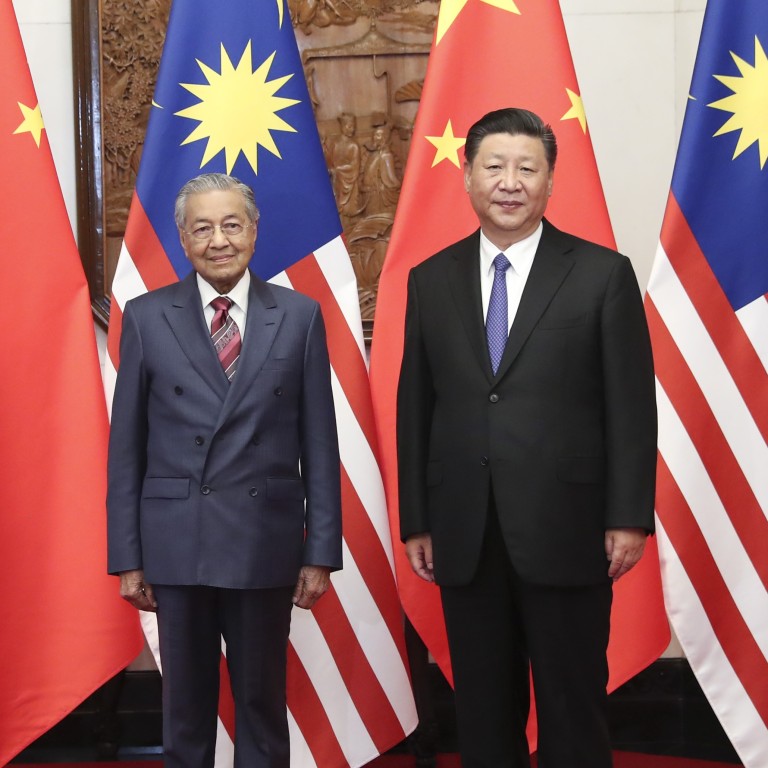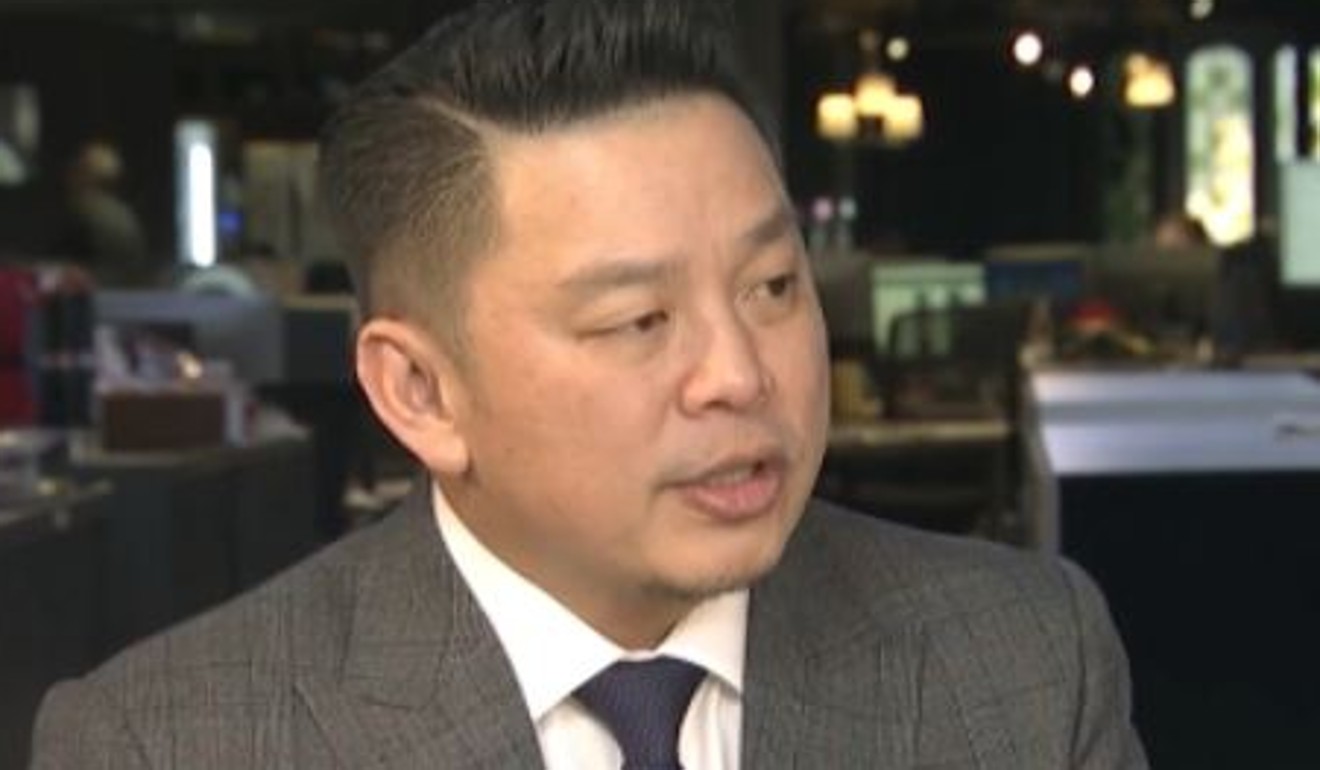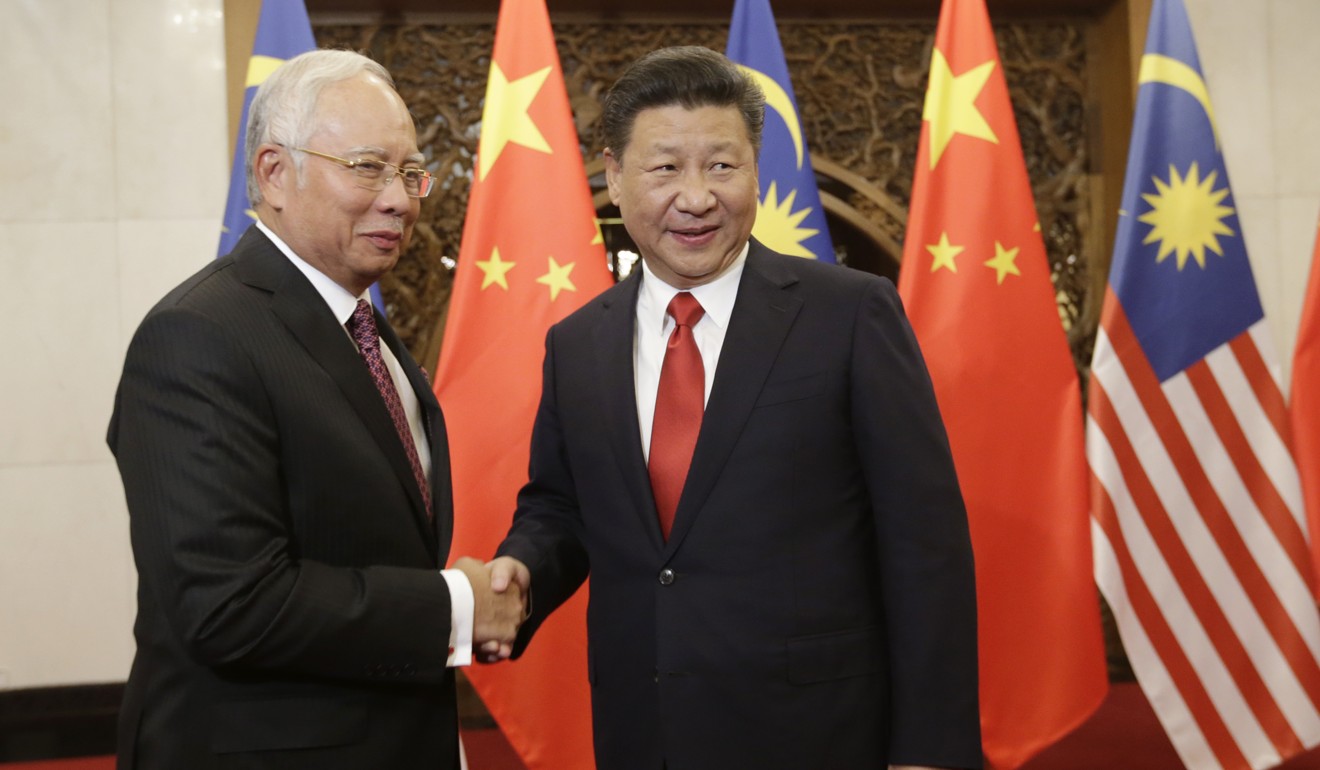
Xi and Mahathir have a ‘very special understanding’, Malaysia’s trade minister says
- Darell Leiking says doubts about ties between Beijing and Kuala Lumpur would dissipate if naysayers knew what the leaders discussed last year
- The accord, he says, stands in sharp contrast to resurgent speculation about a diplomatic chill over stalled Chinese-backed projects in Malaysia
The accord between the two leaders, Leiking said, stood in sharp contrast to resurgent speculation about a diplomatic chill over stalled Chinese-backed projects in his country.
“Xi Jinping and Mahathir have a very special understanding and relationship. Things were said that I cannot reveal, but really good stuff. That’s what I am trying to reassure the world,” Leiking said in the interview at the Post’s Hong Kong newsroom after attending an investors’ conference in the city.
Mahathir says stalled Chinese rail link can go ahead on ‘smaller scale’ if Beijing agrees
“There may be people who assume that the Chinese will respond in a negative way on the review decisions that we made,” he said.
Mahathir’s government is currently negotiating with the state-backed China Communications Construction Company on a way to cancel a US$20 billion rail project signed during the era of scandal-haunted former prime minister Najib Razak.

That decision – along with the axing of several other China-backed deals – followed Mahathir’s shock defeat of Najib in last year’s election.
Mahathir soothed concerns over the rail project during his August visit, for which Beijing rolled out the red carpet.
Questions about the bilateral relationship have resurfaced amid reports earlier this month that negotiations are ongoing to cancel the rail deal – suggesting a likely impasse.
But Leiking said: “But if you look at it, the Chinese are not saying anything. Have you realised? It’s only certain people who are raising it.”
Will Anwar actually succeed Mahathir as Malaysia’s next prime minister?
Najib, now in opposition and awaiting trial for a slew of corruption and misuse of power charges, has repeatedly slammed Mahathir’s plans to cancel the decision – rebuffing the current premier’s claims that the rail link was agreed to at a hugely inflated price and that it is unnecessary.
“Like I said, the friendship [between the two leaders] has been sealed, and there’s direct communication with the Chinese leadership,” Leiking said.
“I find it very strange when people say there is a problem when in fact there is no problem. If only I can reveal the [assurances] by the president [Xi] that he understands our situation, and in fact he empathises with us on what we have to go through.”
Asked if there was a silver lining for Malaysia arising out of the ongoing United States-China trade war, the minister said “he never wanted to take advantage of people’s tariff war or fight”.

While there was some upside for Malaysia, with some Chinese firms looking to relocate to the Southeast Asian country to avoid American tariffs, openly hoping for such opportunities was not the “Asean [Association of Southeast Asian Nations] way or the Malaysian way,” Leiking said.
“When people have problems with other nations, we should seek to find ways to make peace for them, with them, and to ensure that they sort out their problems.”
In the interview, Leiking also addressed another hot topic: the stability of Mahathir’s eight-month-old coalition government.
Mahathir’s pushback against Chinese deals shows belt and road plan needs review
Oblique online barbs by major players within the coalition – such as prime-minister-in-waiting Anwar Ibrahim and Economic Affairs Minister Azmin Ali – have given rise to commentary that the Pakatan Harapan coalition is not as cohesive as it is publicly being made out to be.
“When it comes to running a nation, sporadic news you hear doesn’t define the government you know,” Leiking said, when asked about whether the bloc was facing internal strife.
If there are problems, they are confined to within Pakatan Harapan’s constituent parties rather than the coalition as a whole, the minister said.
Leiking said with Mahathir at the helm, he and his cabinet colleagues had little choice but to cooperate. “There’s someone who’s always reminding you, work together [and] I don’t want to see this problem. If there’s a problem, ship out.”

